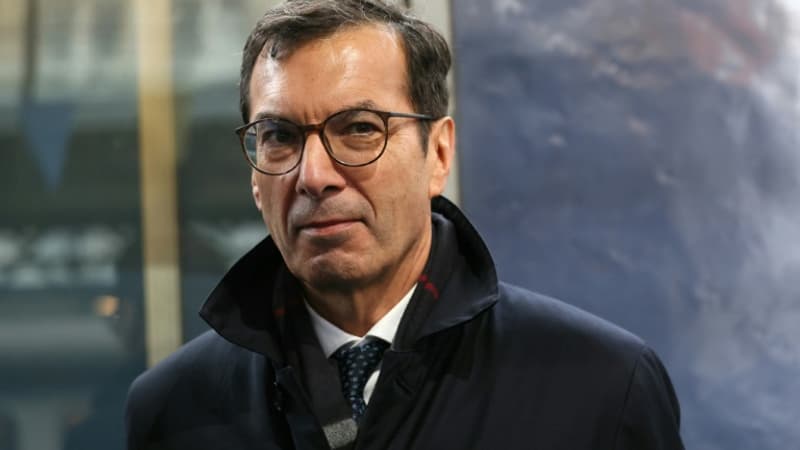Recognized for his openness to dialogue during the six years he headed the SNCF, particularly regarding the retirement of railway workers, Jean-Pierre Farandou became Minister of Labor and Solidarity. The one who is still officially president of the SNCF takes his place in the second government of Sébastien Lecornu, finally returning to Matignon after several days of negotiations with the political oppositions. At stake, in particular, is the suspension of the 2023 pension reform requested by the left.
This hypothesis of suspending this reform provoked the anger of a part of the right, but could become one of the concessions of the Lecornu 2 government to Parliament to avoid censorship. Jean-Pierre Farandou has already experienced compromises regarding pensions. To prevent a social movement among railway workers from disturbing the proper development of the Paris Games, he signed an end-of-career agreement in 2024, which caused controversy on the right and in part of Gabriel Attal’s government. Some then denounced “an evasion of the pension reform”, something that Jean-Pierre Farandou firmly rejected.
“Ability to listen”
Just one month after his appointment in November 2019 as president of the SNCF, a company in which he spent almost his entire career (he joined in 1981), he was already experiencing a first social movement among the longest in the history of the public railway group against Emmanuel Macron’s first pension reform project, finally abandoned during the Covid-19 crisis. In 2023, railway workers will again stage a massive strike against a reform that raises the starting age to 64 and which will finally be adopted by Parliament that same year. “I am tireless in social dialogue,” this mining engineer, son of a professor and more identified with the left, has often repeated.
“Farandou is a railway worker, so we have a common language,” acknowledged at the end of 2024 the Sud-Rail delegate, Fabien Villedieu, who however often opposed his boss, who joined the SNCF in the early 1980s. “We can recognize in him a listening capacity,” confirmed Thierry Nier of CGTCheminots. “But that is not the alpha and the omega. He listened to us regarding freight transport and we still had the liquidation of Fret SNCF” (due to a procedure for illegal aid initiated by the European Commission), he noted.
Savings plan
Upon his arrival as president of the SNCF, Jean-Pierre Farandou was entrusted with a mission: to implement the 2018 railway reform and transform the public establishment SNCF into a public limited company, to prepare it to enter the world of competition. The challenge is significant in the face of a recalcitrant railway body, deprived of its status and the advantages that come with it from January 2020, for new entrants. It must carry out a savings plan to improve the competitiveness of the SNCF, if possible without going into debt.
Affable, he differs from his more ostentatious predecessor Guillaume Pepy by a form of manifest frugality. Just a few months after his arrival, the railway group was facing one of the worst crises in its history. The Covid-19 pandemic paralyzes almost all trains and only a few TGVs continue to operate, in addition to the medical trains chartered to transport patients out of the regions hit by the epidemic. The SNCF goes through successive waves of epidemics, confinements and curfews, but manages to stay afloat as of 2021. In 2022, it even registers a record profit: 2.4 billion euros.
Jean-Pierre Farandou’s mandate was to officially end in mid-2024. It was first renewed until the end of the Paris Games, then until the appointment of his successor, postponed many times since the dissolution of the National Assembly. His appointment as Minister of Labor on Sunday could finally end his interim period and leave the field open to the former prime minister and current director general of the RATP, Jean Castex, appointed by the Elysée to succeed him.
Source: BFM TV


